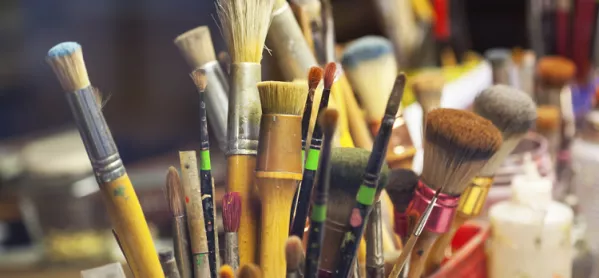The government’s decision to extend school hours to allow extra time for the arts could undermine creative subjects by encouraging a view that they are “hobbyist subjects”, teachers have warned.
They also told how even younger secondary students are being given art classes just once a fortnight, and entries at GCSE are plummeting.
Peter Oates, an art teacher based in the Peak District, told the NASUWT conference that some parents were already discouraging their children from studying art because they did not think it was as valuable as other subjects.
“The government’s latest missive, looking to extend the school day for art, music, drama clubs, will only reaffirm those ill-informed parental views that arts are a hobbyist subject,” he said.
Chancellor George Osborne announced in the budget this month that 25 per cent of schools would extend their school day using a £285m government fund. He said this would allow schools to provide “more extra-curricular activities like sport and art”.
But Mr Oates said the move was being introduced as the formal study of arts and creative subjects was close to being “eradicated” in some schools, in an act of “educational vandalism”.
Teachers told the conference that the Ebac school performance measure had caused school leaders to cut budgets, reduce staff numbers and limit the amount of curriculum time dedicated to subjects such as art, design and drama.
“With so much going on in education, the destruction of the arts might seem to be something of a sideshow,” Mr Oates said.
“However, I believe in future years this period will be regarded as the start of the desertification of creative thought in Britain and the point of closure to many career paths for our current students.”
He said the government’s emphasis on Ebac subjects - English, maths, science, humanities and languages - had provoked an “act of educational vandalism”.
Mr Oates, who has taught art for 38 years, told the conference that some headteachers and school leaders had seen the Ebac measures as “an opportunity to reduce their school’s expenditure by the reduction of time and staffing in arts subjects.”
He said: “A number of schools have almost eradicated some art subjects from their curriculum. They know how important the arts are to their schools but, lemming-like, they jump, in the hope of becoming outstanding.”
Pauline Astle, head of art at an academy in Solihull, West Midlands, said: “Despite achieving the best results in the school last year, I’ve had a huge budget cut.
“My staffing has been cut. I’ve lost my technician. I’m not allowed to run education visits to galleries and year nine now only have a lesson once a fortnight.
“We’re a thriving department with able groups of up to 26.
“However, the students have now been given the message that arts are second rate subjects that are not valued by universities and employers. My uptake at GCSE has now fallen by a third.”




